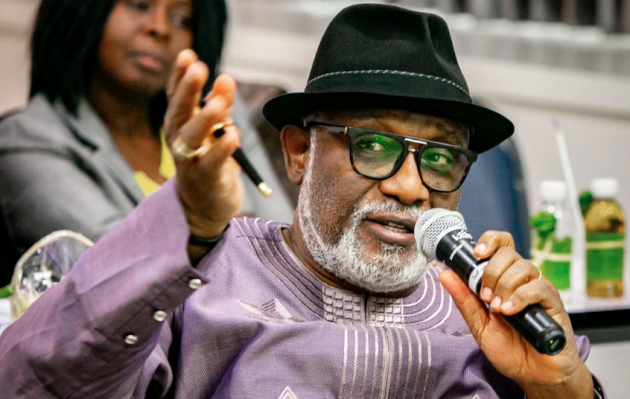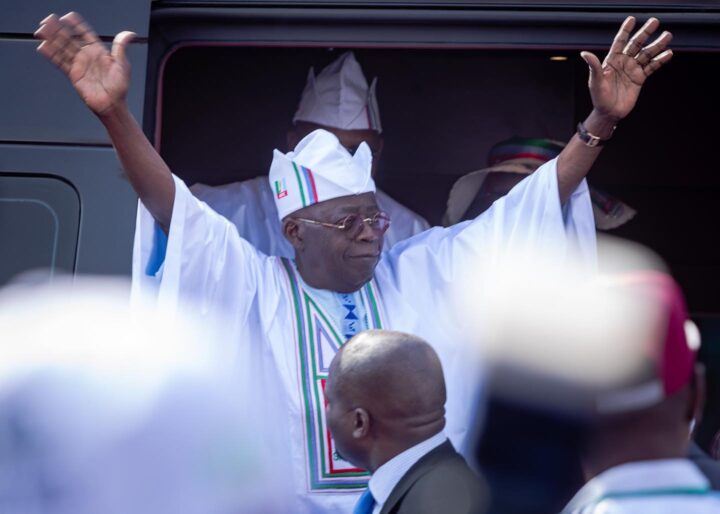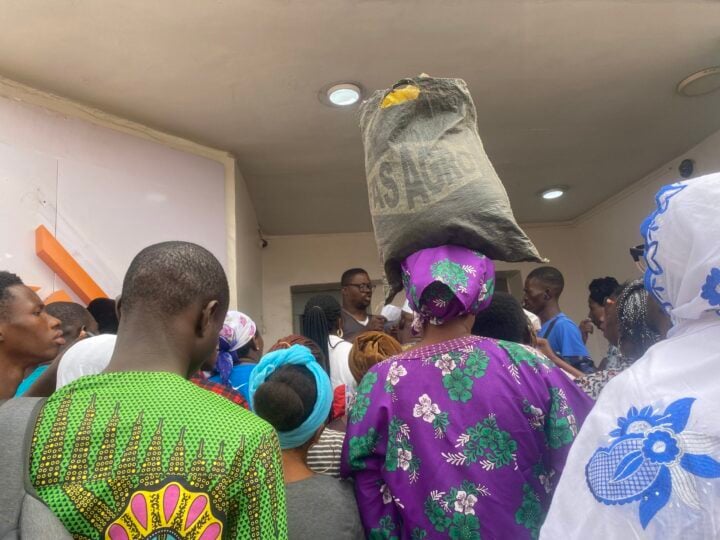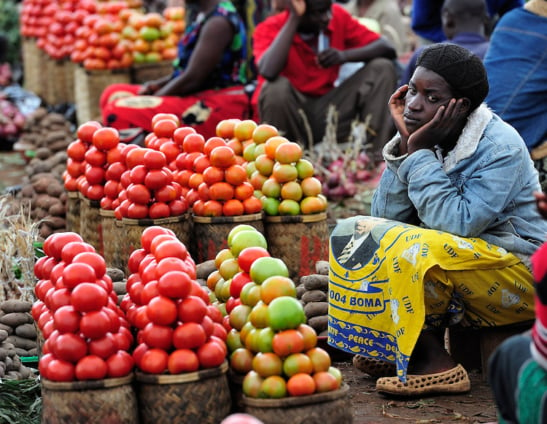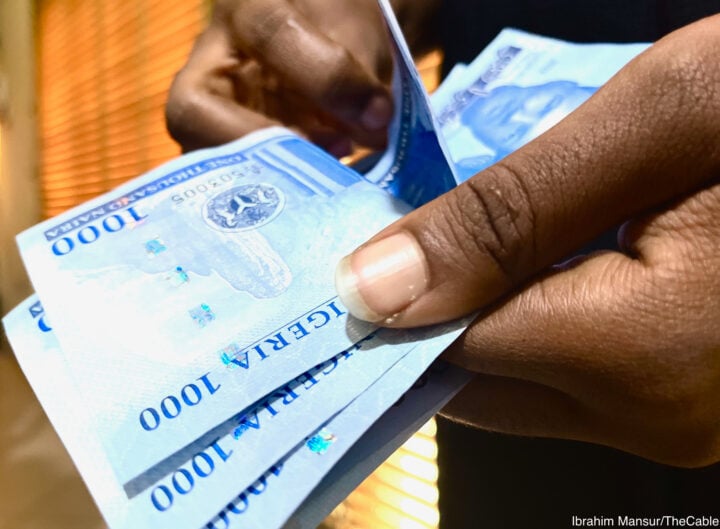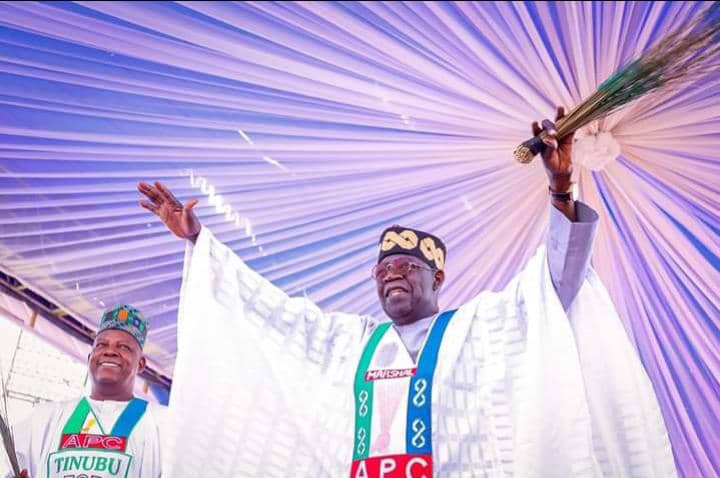BY ‘SINA KAWONISE
This is an abridged version of a paper presented at the National conference on Promoting Sustainable Livestock Reforms and Mitigating Associated Conflicts in Nigeria, held at the NAF Centre, Abuja, February 13-14, 2023
On January 8, 2022, this news broke: “Governor Rotimi Akeredolu of Ondo state has advised those residing in southwest states to consider killing chickens for ceremonies instead of cows in order to prevent capital flight. According to the governor, the region has been losing nothing less than N2.5 billion daily to the consumption of cows.
“Akeredolu stated this while addressing some stakeholders in the education sector in Akure, the state capital.
Advertisement
The governor, who spoke through his special adviser on agriculture and agribusiness, Akin Olotu, said the consumption of chickens for ceremonies was not only healthy but will also boost the economy in the southwest region. He added that the development had been one of the factors contributing to the poverty rate in the region.
“‘The President said grow what you eat and eat what you grow. I have been a serious advocate and I am reemphasising it, please let us use chicken for our ceremonies.
“Yes, I meant broilers. They are cheaper. I met with the traditional rulers and I told them that those before them have to encourage that.
Advertisement
“‘Why am I saying this? There is a N2.5 billion beef market in the southwest every day. It means every day in the southwest, we send N2.5 billion out of the southwest. That is the bedrock of poverty in the region.
“We have a region that is not retaining money. Don’t let any politician tell you any abracadabra, if we don’t reverse that trend, we will continue to remain in the same spot” — (Daily Post).
Going by Akeredolu’s figure, consuming 10,000 cows daily in the southwest at N250,000 each equals N2.5 billion daily and N912.5 billion annually. The numbers cited by the governor are correct and accurate. However, what the Fulani herder gets from the N250,000 market price for one live cow is not more than N100,000 or 40%. The balance of N150,000 or 60% is shared by transport costs, sundry levies and merchants’ profits. What that means is that the sure outflow from the southwest to the cattle farmers in the northern part of Nigeria is a maximum of N365 billion per annum. And this is based on the assumption that all the 10,000 cows slaughtered daily in the southwest come from the north.
In addition to the sales value of N250,000 for the live cow, there is a long value chain that yields a minimum of another N250,000. By one account: “Fourteen useful raw materials for the feed mill industry are produced from abattoir waste and by-products” (Femi Ibirogba, The Guardian, January 3, 2022). According to a feature article published in the Daily Trust, “a popular adage in Hausa refers to the cow as ‘Nagge dadi goma’ which could literally be translated as ‘cattle have 10-fold value’” (Daily Trust, January 19, 2022). This conforms with the definition of the value chain “as a sequence of related enterprises conducting activities so as to add value to a product from its primary production through its processing and marketing to the final sale of the product to consumers (Graeme et al, 2012).
Advertisement
To cite one example of a food derivative of the cow: The ponmo delicacy produced from one cowhide has a minimum market value of N50,000 or 20% of the purchase price of the whole cow. In this chain of value addition, the people of the southwest are dominant players and beneficiaries. Hardly would you see a northerner participate in the consequential business chain of this huge value addition. A corollary of this is employment generation from this value chain which hugely benefits basically only people of the southwest. When the extra value of N250,000 is added to the sales value of N250,000 for a live cow, the total value becomes N500,000. This yields an annual value of N1.825 trillion out of which the Fulani cattle producers get only N365 billion or 20%. The question now is this: Who is working for who; who’s benefiting from whom?
As a counterpoint to Akeredolu’s position, let’s look at just one small item in the agriculture value chain in which the southwest has a comparative advantage. According to current estimates, 21 billion chicken eggs are produced annually in Nigeria (financialstreet.ng, July 9, 2022). At 30 eggs per crate, that’s 700 million crates per annum. With the current farm gate price of N2,000 per crate, that’s a total of N1.4 trillion per annum. Current estimates say about 70% of all eggs produced in Nigeria take place in the southwest. That’s revenue of N980 billion to Southwest egg producers at farm gate price. If just half of that is sold outside of the southwest, that fetches the zone an annual revenue of N490 billion. This is a whooping N125 billion more than the N365 billion going to cattle producers in the North.
Now, that’s just chicken eggs. We did not account for chickens produced in the southwest and exported to other geopolitical zones of the country. In terms of manufacturing, here’s what just two states (Lagos and Ogun) of the southwest are getting from other zones in the country: “With a combined manufacturing production value of N3.2 trillion in the second half of 2021, Lagos and Ogun industrial zones were responsible for 86% of manufactured goods consumed in the country and exported. According to the latest data released by the Manufacturers’ Association of Nigeria (MAN), of the N3.73 trillion worth of goods produced across 14 industrial zones nationwide, Lagos (Ikeja and Apapa) and Ogun zones accounted for the bulk of locally produced goods, while the remaining 12 zones recorded production value of N526 billion” (Manufacturers Association of Nigeria, The Guardian, May 27, 2022).
It is clear from the above that Akeredolu’s claim that the southwest is losing N2.5 billion daily to the north due to the consumption of beef is false. On the balance, the southwest is a net gainer in terms of inter-zonal trade among geopolitical zones of the country.
Advertisement
Back to our main focus on the media, it is interesting to note that not a single opinion writer from southern Nigeria interrogated the false narrative of Akeredolu. The only two newspaper pieces on the issues were one feature article published in the northern-oriented Daily Trust on January 19, 2022, and an opinion article published in Thisday by the respected senior journalist from the north, Mahmud Jega. In actual fact, the Akeredolu thesis went viral in the traditional media (radio, television and newspapers) and on social media (especially on WhatsApp groups), particularly in the southwest.
Bias feeds falsehood; falsehood nourishes bias
Advertisement
Rotimi Akeredolu, currently governor of the southwestern state of Ondo, isn’t a journalist. He is a senior lawyer, though both of us worked as members (we were designated consulting editors then) of the editorial board of Nigerian Tribune (Nigeria’s oldest private newspaper). I testify that Akeredolu is habitually a truthful, brilliant and intrepid intellectual. He has a sharp and sound mind. Anyone who has followed his public interventions before his stint as a senior public servant and even now as governor would attest to my testimonial of him.
Now if Akeredolu was as intellectually astute as described above, why didn’t he see the errors of his beef thesis? Bias. Yes, bias! Akeredolu is the governor of a state terrorised by Fulani militias. This is not an allegation. Many Fulani criminals that kidnapped, killed and despoiled have been apprehended and jailed in the state. Those who kidnapped a former secretary to the government of the federation, Olu Falae, were Fulani. They were caught and are currently serving time in jail. Those who killed the daughter of the leader of the Pan Yoruba socio-political organisation, Afenifere, Pa Reuben Fasoranti, were Fulani. Many settlements in the state have been attacked, with scores killed, and property destroyed, reportedly by Fulani terrorists.
Advertisement
As it was in Ondo so was it in all other southwest states. With the activities of the few criminal elements among the Fulani in the zone, the incidents of farmers/herders clashes in the Oke-Ogun and Ibarapa areas of Oyo state, in the Yewa area of Ogun state, and in several parts of Osun and Ekiti states, the narrative has become one of Fulani push to expropriate ancestral lands of Yoruba people for the purpose of cattle grazing. With that belief, the perennial farmers/herders clashes that had been occurring in those places for decades and which were amicably resolved by non-state authorities suddenly became an ethnic (sometimes religious) issue. So many factors have been identified as causative of that cognitive distortion, and those are beyond the scope of this paper.
It is against the backdrop of the cognitive distortions that now characterise the farmers/herders conflict that the Akeredolu thesis should be seen and understood. It’s a major reason why media chiefs, media organisations and social media influencers in the southwest never even bothered to interrogate Akeredolu’s beef with northern beef. By lapping up the falsehood, the extant bias is reinforced and the vicious cycle of bias-falsehood-bias is established — all now with a life of its own. And it isn’t the southwest media and its chiefs alone that are culpable for this bias or trapped in the vicious circle. Our colleagues in the core north either explain away the criminal activities of herders of northern descent or claim that they were being “profiled” or both. For the media, therefore, to be in a position to help in “citizens engagement and inter-cultural communication in mitigating farmers/herders conflict in Nigeria, this vicious circle must first be broken.
Advertisement
Kawonise is a former lecturer in Sociology at the Olabisi Onabanjo University, Ago-Iwoye, Ogun state; former commissioner for information and orientation, Ogun state; and currently publisher/editor-in-chief, NewsScroll newspaper (www.newsscrollngr.com). He can be reached via 08033224666
Views expressed by contributors are strictly personal and not of TheCable.
Add a comment
